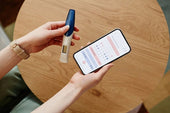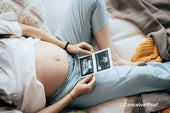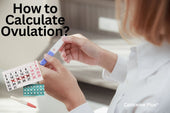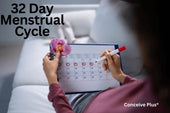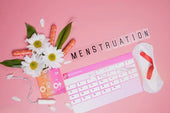How Many Days After Ovulation Are You Pregnant and When to Test for Pregnancy
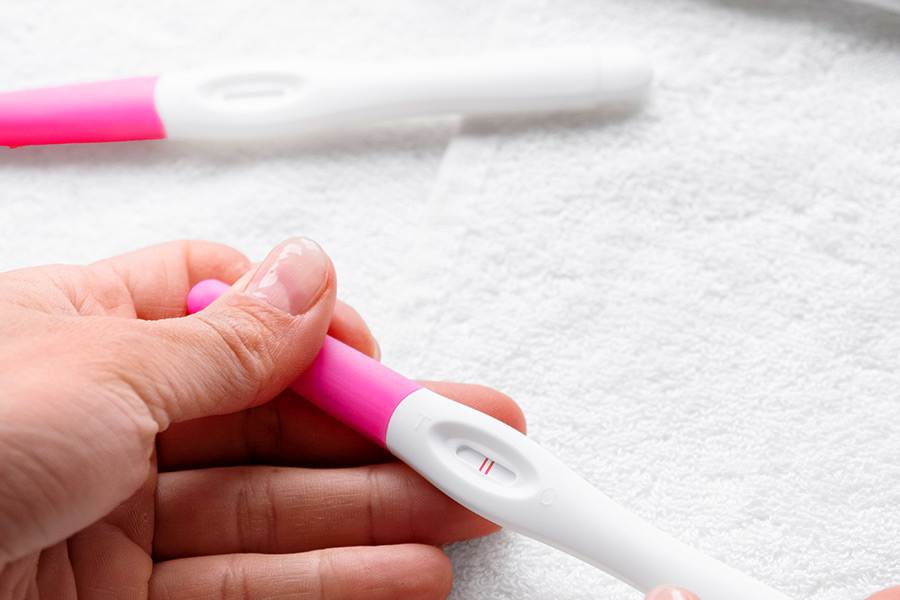
Trying to conceive can sometimes feel like stepping into a world loaded with questions, confusion, and a lot of hopes that you carry quietly inside. It’s not just about having intercourse at the right time; it’s also about understanding what’s actually happening in your body. If you’ve been wondering things like how many days after ovulation are you pregnant, well, that’s a more complicated question than it might first seem. In reality, there’s a delicate timeline involved, starting from the day your egg is released up until the moment a pregnancy test can finally confirm that exciting news. It’s no wonder people get anxious waiting for that window of clarity.
There is no instant blueprint. Some folks think pregnancy is immediate, but actually, fertilization and implantation take time. Still, understanding the general flow—from ovulation, to possible fertilization, to the final step of testing—can help relieve at least some uncertainty [1]. At the very least, knowing the basic timeline gives you a rough guideline so you’re not testing too early or stressing unnecessarily. Of course, everyone’s body has its quirks, so none of this is set in stone.
Understanding Ovulation
Ovulation is that special moment when your ovary releases a mature egg, usually about halfway through your menstrual cycle, though this can shift based on stress or general health. That egg only sticks around for about 12 to 24 hours, but during that brief time, it’s ready to party with some sperm. The big question a lot of people ask is can you get pregnant after ovulation? Technically, yes, but it’s all about timing. Sperm can survive a few days inside your reproductive tract, so even intercourse a bit before ovulation can lead to fertilization afterward. If you wait too long, though, the egg calls it quits and you have to try again next cycle.
Because timing can feel tricky, many rely on methods like ovulation predictor kits, checking cervical mucus, or taking daily basal body temperature readings. Understanding when that egg pops out isn’t always easy, but any clue you can grab onto might help you figure out your best fertile window [2].
Fertile Window and Timing Intercourse
Let’s talk about the “fertile window.” This window usually stretches a handful of days before ovulation and maybe the day of ovulation itself. Once ovulation passes, getting pregnant becomes tougher. But what about questions like can you get pregnant a week after you ovulate or can you get pregnant 6 days after ovulation? Generally, no. By then the egg has usually vanished. Still, if your ovulation day wasn’t what you assumed, maybe shifted by stress or just a one-off body quirk, understanding when are you most fertile can help clarify these timing uncertainties.
People sometimes get discouraged by the complexity. Just remember, it’s not just about hitting one perfect day. Having sperm waiting in the reproductive tract before the egg arrives often increases chances. If you misjudge timing, don’t beat yourself up. Your body isn’t a clock, and that’s perfectly normal [3].
Conception Basics: Egg and Sperm Lifespan
When the egg is released, you have a short lifespan to work with, maybe a day at most. But sperm can outlast that by several days, hanging around in the fallopian tubes. That’s why having intercourse before ovulation is often recommended. Some ask how long after I ovulate can I get pregnant or how long after you ovulate can you still get pregnant—realistically, if you’ve missed that 24-hour or so window after ovulation, the egg’s probably gone. Still, if sperm arrived earlier and waited, fertilization could occur right after ovulation.
Egg meets sperm, fertilization may happen, and then the journey begins. The fertilized egg (embryo) makes its way down to the uterus. On that day after ovulation pregnancy might have technically started at a microscopic level, but you wouldn’t know it yet. No test can tell you that soon. Nature prefers to keep it a secret until the embryo implants and produces that pregnancy hormone (hCG) you need for a test to turn positive [4].
Right After Ovulation: Can Pregnancy Occur?
We’ve mentioned timing, but let’s be direct: how many days after ovulation can you conceive? The ideal window is basically that first day or so after the egg is released. Beyond that, the party’s over. If fertilization doesn’t occur quickly, the egg breaks down. Yet, your partner’s sperm could have been waiting there for a few days prior, which often confuses people’s perception of when pregnancy actually happened.
Because of this, you might wonder how soon after conception can you know if you’re pregnant. Unfortunately, even though fertilization can happen pretty soon after ovulation, you can’t detect pregnancy instantly. Implantation might take up to 6-10 days, and only then does the body start producing hCG. Until then, tests are useless. You have to give your body time to do its thing [5].
Debunking Common Timing Myths
Some guess they can test a day or two after ovulation. Others think if you had intercourse a week after ovulation you’re safe. Reality is more nuanced. People often ask can you get pregnant the week after ovulation. Unless you got your timing off, no, because that egg isn’t going to hang around. Similarly, if you’re thinking when you get pregnant, you might be eager to test right away, but it doesn’t work like that. 8 early signs of pregnancy can also mimic premenstrual ones, adding confusion. Hormones can play tricks on your mind and body, making you question every cramp or mood swing [6]. The body is subtle, not a digital clock displaying “Pregnant: Yes or No.”
Waiting for Implantation and hCG Production
It’s tempting to run out and buy a test as soon as possible. But remember, you need hCG for that test to turn positive. Until the embryo implants, there is no hCG being pumped into your bloodstream or urine. This waiting period drives many people nuts. They find themselves counting the hours, thinking how soon after ovulation can you take a pregnancy test or wondering how soon after ovulation can I take a pregnancy test. The truth: early testing can break your heart if it’s too soon. Waiting until you miss your period is often the smartest approach, even though patience might not come easily [7].
Deciding When to Test for Pregnancy
Now let’s get real practical. People often type into search engines: when to take pregnancy test after ovulation, how many days after ovulation can you test, how many days post ovulation can you test, how soon after ovulation can you test, and so forth. All these questions boil down to: don’t test too early if you want a trustworthy result.
A common rule of thumb is roughly two weeks after ovulation. That gives time for implantation and for hCG to build up. But we all know two weeks can feel like two months when you’re anxious. Still, forcing yourself to wait often saves you from seeing a negative result that simply happened because you jumped the gun.

Early Testing: Risks and Considerations
If you’re still itching to test early, let’s consider the pitfalls. Wondering how early can you test after ovulation, how soon after ovulation pregnancy test, or how many days DPO can you test (DPO meaning days past ovulation) is normal. Some high-sensitivity tests claim you can detect hCG super early—maybe 8-10 days post-ovulation. Occasionally, someone gets a positive that early, which encourages others to try the same. But these early positives are the exception, not the rule [8].
There’s also a risk of chemical pregnancies: fertilized eggs that implant but don’t develop. Testing too soon might reveal a pregnancy that would naturally resolve before you’d even know it existed. Sometimes, it’s easier on your emotions to wait a bit longer before testing, even though it’s tough.
Comparing Different Types of Pregnancy Tests
At-home urine tests vary in sensitivity. If you’re asking how long after ovulation can you test, how many days past ovulation can you test, or how many days past ovulation can you take pregnancy test, keep in mind that the type of test you use matters. Some are designed to pick up super low levels of hCG earlier, while others need you to be further along.
Blood tests done by a healthcare provider can detect pregnancy earlier than urine tests. But most people rely on store-bought sticks. If you must test early, do it with first morning urine when hCG concentration is likely higher. Just don’t panic if the result is negative. Wait a couple more days and try again if your period still hasn’t shown up [9].
Handling Irregular Cycles and Late Ovulation
Not everyone has textbook cycles. If you ovulate later than usual, all this neat timing talk gets messier. You might think you’re testing at 14 days post-ovulation when you’re really only at 10. This might explain why some people ask how many days past ovulation should you test and still get disappointed. If your cycle is unpredictable, maybe rely on ovulation tests or track symptoms closely. After all, after ovulation when to test for pregnancy isn’t a one-size-fits-all formula.
And if you started off by asking how many days after ovulation can you test for pregnancy or how long after ovulation can you test for pregnancy, remember it’s not just about “how many days” but also about your unique cycle. Some individuals need to wait a couple extra days to see a positive, while others might get it right on time [10].
Emotional Challenges During the Two-Week Wait
The wait between ovulation and testing can drive anyone a bit nuts. Doubts creep in. You may worry when to test after ovulation. You may fear a negative result or feel frustrated by advice that says “just wait a bit longer.” It’s normal to feel restless, checking the calendar constantly. Many people browse forums, seeing if anyone got a positive before them, or they re-check common questions like how soon after ovulation can you take a pregnancy test or how soon after ovulation pregnancy test to reassure themselves.
Try focusing on other aspects of life, if you can. Distract yourself with a good book, a hobby, or a chat with a friend. Stressing out won’t change the outcome. Sometimes, sharing feelings with a trusted loved one helps lighten the emotional load. Even journaling your feelings can help [11].
Practical Tips to Improve Your Chances
Beyond timing, you might wonder what else you can do. Some people attempt lifestyle adjustments—eating healthier, staying active, cutting down on stress. While these steps don’t guarantee instant success, they set a better stage for overall fertility. Taking prenatal vitamins or ensuring you have balanced nutrition might support your body during those early stages. This won’t necessarily answer how soon after ovulation can I take a pregnancy test or make a test turn positive sooner, but it might improve the environment in which conception occurs.
If you find yourself repeatedly frustrated, consider tracking several cycles. Over time, you might see patterns: perhaps you routinely ovulate later than you thought. If you realize you ovulate on day 18 rather than day 14, you can adjust your testing schedule and reduce guesswork 28.
Navigating the TTC Journey
Trying to conceive is often both joyful and stressful. On one hand, there’s excitement and dreaming about the future. On the other, there’s a never-ending list of questions: how soon after ovulation can you test, how many days after ovulation can you test, how many days DPO can you test, when to take pregnancy test after ovulation, pregnancy test after ovulation—it can start feeling like a maze of similar-sounding queries.
But remember, you’re human, and so is your body. It doesn’t operate on a perfect schedule. Maybe you want to know exactly how early can you test after ovulation or how long after ovulation can you test, but the real answer often depends on when implantation happened, how quickly hCG rises, and if you guessed your ovulation date correctly. Sometimes, what really matters is patience and self-kindness.
Whether you get the result you hope for right away or you need a few cycles, understanding all these timelines and having realistic expectations helps preserve your sanity. It’s not always easy, but remembering that conception and early pregnancy detection take time might help keep things in perspective. So, breathe. Give it those extra days before you rip open that test. Remind yourself that bodies are not machines. You’re doing what you can, and that counts for something [12].
The Bottom Line
Navigating the early stages of trying to conceive can feel overwhelming. Questions like how many days after ovulation are you pregnant might weigh on your mind, but remember that pregnancy is a process that unfolds over days, not moments. Give your body time—time for fertilization, time for implantation, and time for hCG to reach levels that a test can read. While the waiting game is rarely fun, understanding this timeline may help soothe your nerves and guide you toward testing at the right moment. With a bit of patience, knowledge, and self-kindness, you can approach these pivotal weeks feeling more grounded and less uncertain.
FAQs
If I’m wondering how many days after ovulation are you pregnant, when does actual pregnancy start?
Actual pregnancy begins only after the fertilized egg implants into your uterus, which typically happens around 6 to 10 days following ovulation. Until that point, you wouldn’t technically be “pregnant” in a way that can be detected by a test.
I’ve heard conflicting advice, so how soon after ovulation can you take a pregnancy test?
While some early detection tests may show a faint line as early as 8-10 days post-ovulation, it’s best to wait until around the expected period date for clearer and more reliable results.
How many days after ovulation can you test to avoid heartache from false negatives?
A common rule is to wait about 14 days after ovulation before testing. This often lines up with the start of your expected period, giving time for hCG levels to rise enough for a home test to accurately detect them.
If I ovulate late, when to take pregnancy test after ovulation?
If you suspect late ovulation, you might need to add a few extra days before testing. Essentially, still allow about two weeks post-ovulation, even if that means testing later than the usual expected period date.
Does how soon after conception affect when I should test?
Yes. Conception occurs close to ovulation, but you need to wait for implantation and rising hCG. Until that hormone reaches a detectable level, tests won’t give you a true positive. Patience during these early days can save a lot of confusion.
Citations
- Wilcox, A. J., Weinberg, C. R., & Baird, D. D. (1995). Timing of sexual intercourse in relation to ovulation. Effects on the probability of conception, survival of the pregnancy, and sex of the baby. The New England journal of medicine. Available at: https://pubmed.ncbi.nlm.nih.gov/7477165/
- Lloyd, R., & Coulam, C. B. (1989). The accuracy of urinary luteinizing hormone testing in predicting ovulation. American journal of obstetrics and gynecology. Available at: https://pubmed.ncbi.nlm.nih.gov/2660566/
- Sauer M. V. (2015). Reproduction at an advanced maternal age and maternal health. Fertility and sterility. Available at: https://pubmed.ncbi.nlm.nih.gov/25934599/
- Cakmak, H., & Taylor, H. S. (2011). Implantation failure: molecular mechanisms and clinical treatment. Human reproduction update. Available at: https://pubmed.ncbi.nlm.nih.gov/20729534/
- Franasiak, J. M., Alecsandru, D., Forman, E. J., Gemmell, L. C., Goldberg, J. M., Llarena, N., Margolis, C., Laven, J., Schoenmakers, S., & Seli, E. (2021). A review of the pathophysiology of recurrent implantation failure. Fertility and sterility. Available at: https://pubmed.ncbi.nlm.nih.gov/34674825/
- Jeve, Y. B., & Davies, W. (2014). Evidence-based management of recurrent miscarriages. Journal of human reproductive sciences. Available at: https://pmc.ncbi.nlm.nih.gov/articles/PMC4229790/
- Bashiri, A., Halper, K. I., & Orvieto, R. (2018). Recurrent Implantation Failure-update overview on etiology, diagnosis, treatment and future directions. Reproductive biology and endocrinology. Available at: https://pubmed.ncbi.nlm.nih.gov/30518389/
- El Hachem, H., Crepaux, V., May-Panloup, P., Descamps, P., Legendre, G., & Bouet, P. E. (2017). Recurrent pregnancy loss: current perspectives. International journal of women's health. Available at: https://pmc.ncbi.nlm.nih.gov/articles/PMC5440030/
- Rodrigues, V. O., Polisseni, F., Pannain, G. D., & Carvalho, M. A. G. (2020). Genetics in human reproduction. JBRA assisted reproduction. Available at: https://pmc.ncbi.nlm.nih.gov/articles/PMC7558894/
- Paulson, R. J., Sauer, M. V., & Lobo, R. A. (1990). Factors affecting embryo implantation after human in vitro fertilization: a hypothesis. American journal of obstetrics and gynecology. Available at: https://pubmed.ncbi.nlm.nih.gov/2256515/
- Zegers-Hochschild, F., Adamson, G. D., de Mouzon, J., Ishihara, O., Mansour, R., Nygren, K., Sullivan, E., Vanderpoel, S., International Committee for Monitoring Assisted Reproductive Technology, & World Health Organization (2009). International Committee for Monitoring Assisted Reproductive Technology (ICMART) and the World Health Organization (WHO) revised glossary of ART terminology, 2009. Fertility and sterility. Available at: https://pubmed.ncbi.nlm.nih.gov/19828144/
- Barrett, J. C., & Marshall, J. (1969). The risk of conception on different days of the menstrual cycle. Population studies. Available at: https://pubmed.ncbi.nlm.nih.gov/22073960/





